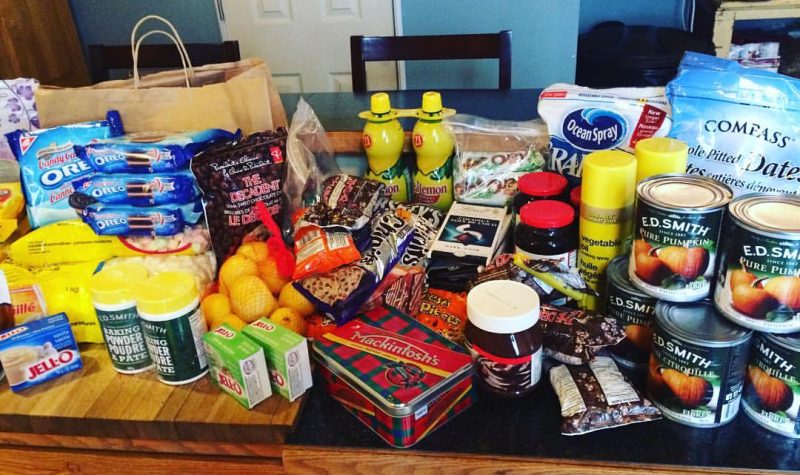A local outreach run by two former social workers is finding unique ways to reach Ottawa’s communities in need.
Highjinx is a self-described “social enterprise” that operates in downtown Ottawa. Their philosophy is that nobody is perfect, and everyone needs help now and then.
Leigh Reid and Karen Nielsen founded Highjinx in 2011 after becoming frustrated with traditional social work. In an interview with CHUO, the pair explain what makes Highjinx unique from other food cupboards and outreaches.
“We just sort of saw that people weren't really getting the help that they needed,” says Reid. “And we just thought there was a way that we could simplify that and make it easier, and give people what they need instead of making them jump through hoops.”
Reid and Nielsen, who met while they were both working at the Salvation Army, say their experience with traditional social work is that not everyone gets the help they need. The model at Highjinx is different—anyone who visits the store front can access donations, without needing to fill out any paperwork.
Most traditional food banks and food cupboards have specific eligibility criteria, such as income, which clients must fulfill to access services. Additionally, many require proof of identification, and will only serve each unique client once a month.
“A lot of times when neighbours need assistance, you have to fill out all the paperwork, you have to… prove that you need these items,” says Nielsen. “There is very little dignity in that.”
Highjinx is described by Reid and Nielsen as “a safe house, like your auntie’s.”
It consists of three components: a food cupboard, accessible to anyone in the community; a furniture bank which offers used items to people who need them; and a storefront which sells vintage items. Highjinx doesn’t receive any outside funding, so the storefront provides much-needed revenue to keep the whole operation running.
The storefront operates Tuesdays through Saturdays, but Reid and Nielsen work seven days a week to collect donations and keep the food cupboard stocked. They also keep a pantry stocked with food outside of the storefront, which is always accessible to the community.
“We totally rely on the community members bringing food or ingredients, we don't take any government funding,” says Nielsen. “There is a definite hunger problem, but we're not solving it with fancy programs—we need to solve it with community and giving people access to food every single day.”
Although food-insecurity was on the rise prior to the pandemic, Reid and Nielsen say they have felt the drastic change the pandemic has brought to Ottawa.
The pair say they see an “exponential” number of people using their services now compared to two years ago.
“Working families are coming and asking for food to help make ends meet,” says Reid. “Just having people at home was also challenging, people needed different supplies and more food for kids that are at home and different kinds of things. It just changed everything.”
In addition to running the storefront and distributing donations, Reid and Nielsen also opened a takeout window through the back of Highjinx, which offers home-cooked meals every day of the week.
Although Highjinx is currently operating on reduced hours due to COVID-19 restrictions, Reid and Nielsen are looking forward to seeing more faces, both new and old, at the outreach in the near future.
Listen to the CHUO story below:


